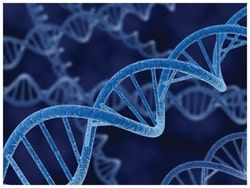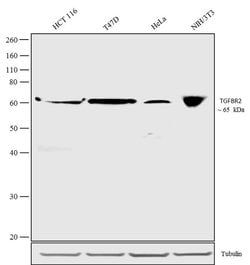Huntingtin Recombinant Polyclonal Antibody (3HCLC), Invitrogen™
Manufacturer: Thermo Scientific
Select a Size
| Pack Size | SKU | Availability | Price |
|---|---|---|---|
| Each of 1 | 71-069-5-Each-of-1 | In Stock | ₹ 44,099.50 |
71-069-5 - Each of 1
In Stock
Quantity
1
Base Price: ₹ 44,099.50
GST (18%): ₹ 7,937.91
Total Price: ₹ 52,037.41
Antigen
Huntingtin
Classification
Recombinant Polyclonal
Concentration
0.5 mg/mL
Formulation
PBS with 0.09% sodium azide; pH 7.2
Gene Accession No.
P42858
Gene Symbols
Htt
Immunogen
Peptides corresponding to Human HTT (aa 82-99, 584-601, 650-666)
Quantity
100 μg
Primary or Secondary
Primary
Target Species
Human
Product Type
Antibody
Isotype
IgG
Applications
Immunocytochemistry
Clone
3HCLC
Conjugate
Unconjugated
Gene
Htt
Gene Alias
AI256365; C430023I11Rik; Hd; HD protein; HD protein homolog; Hdh; HTT; Huntingtin; huntingtin (Huntington disease); Huntingtin, myristoylated N-terminal fragment; Huntington disease gene homolog; huntington disease protein; huntington disease protein homolog; IT15; solute carrier family 6 (neurotransmitter transporter, serotonin), member 4
Host Species
Rabbit
Purification Method
Protein A
Regulatory Status
RUO
Gene ID (Entrez)
3064
Content And Storage
Store at 4°C short term. For long term storage, store at -20°C, avoiding freeze/thaw cycles.
Form
Liquid
Description
- This antibody is predicted to react with Monkey, Mouse and Bovine
- Recombinant rabbit polyclonal antibodies are unique offerings from Thermo Fisher Scientific
- They are comprised of a selection of multiple different recombinant monoclonal antibodies, providing the best of both worlds - the sensitivity of polyclonal antibodies with the specificity of monoclonal antibodies - all delivered with the consistency only found in a recombinant antibody
- While functionally the same as a polyclonal antibody - recognizing multiple epitope sites on the target and producing higher detection sensitivity for low abundance targets - a recombinant rabbit polyclonal antibody has a known mixture of light and heavy chains
- The exact population can be produced in every lot, circumventing the biological variability typically associated with polyclonal antibody production
- Huntingtin is a disease gene linked to Huntington's disease (HD), a neurodegenerative disorder characterized by loss of striatal neurons
- This is thought to be caused by an expanded, unstable trinucleotide repeat in the huntingtin gene, which translates as a polyglutamine repeat in the protein product
- HD is a mid-life onset autosomal dominant neurodegenerative disease that is characterized by psychiatric disorders, dementia, and involuntary movements (chorea), leading to death in 10-20 years.The huntingtin locus is large, spanning 180 kb and consisting of 67 exons
- The huntingtin gene is widely expressed and is required for normal development
- It is expressed as 2 alternatively polyadenylated forms displaying different relative abundance in various fetal and adult tissues
- The larger transcript is approximately 13.7 kb and is expressed predominantly in adult and fetal brain whereas the smaller transcript of approximately 10.3 kb is more widely expressed
- The genetic defect leading to Huntington's disease may not necessarily eliminate transcription, but may confer a new property on the mRNA or alter the function of the protein.



